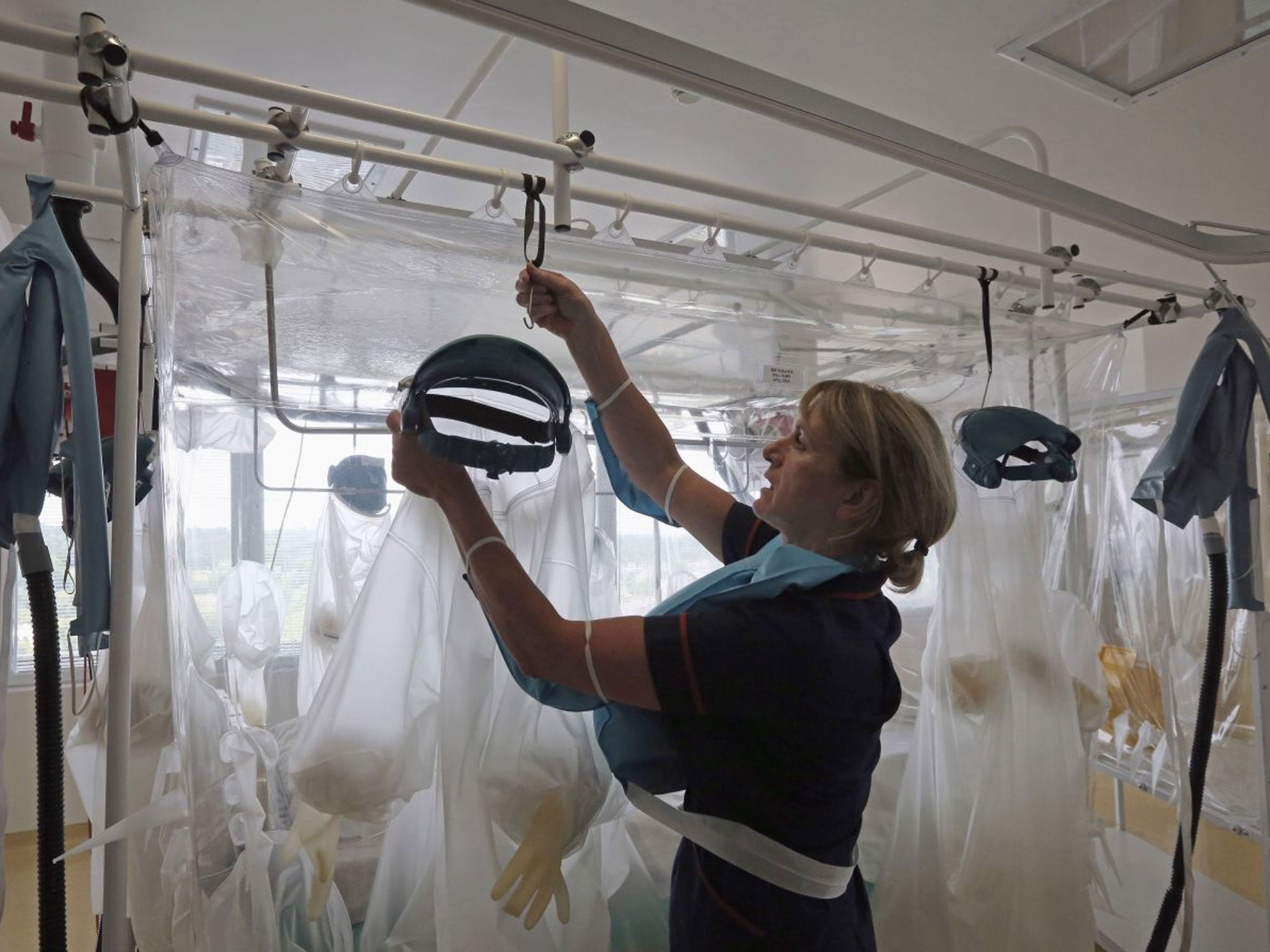Ebola in Glasgow: Britain likely to face more cases of deadly virus but is 'well prepared', says Chief Medical Officer
Doctors in Glasgow have confirmed the first ever case of Ebola to be diagnosed in the UK

The UK is likely to be faced with a handful of Ebola cases in the coming months, but the country is “well prepared”, the chief medical officer has urged.
Dame Sally Davies' reassurances come after an NHS worker who volunteered in Sierra Leone became the first person to be diagnosed with the virus in the UK on Monday night.
More the 7,000 have people have died of the deadly virus following the start outbreak in late 2013 in Guinea. The majority of the fatalities have been in the West African nations of Guinea, Liberia and Sierra Leone.
In October, Health Secretary Jeremy Hunt introduced screening for the disease at some UK airports, as he told MPs that a number of Ebola cases were expected in the UK by Christmas.
But figures from Public Health England (PHE) show that 112 of the 113 tests on suspected Ebola sufferers were negative, up to 4 December.
The positive diagnosis of the nurse who had worked for a Save the Children-run hospital in Kerry Town, Sierra Leone, comes after British nurse William Pooley, 29, was cured of the virus at London’s Royal Free hospital. The new patient will be transported to the specialist facility as soon as possible, officials have said.
Unlike the female healthcare worker, Pooley was diagnosed in Africa before being flown to the UK for treatment. Having made a full recovery, he has returned to Sierra Leone to continue his work in battling the disease.
Dame Sally said: “The risk of the general public in this country catching Ebola remains very low. However, we still estimate that there could be a handful of cases in this country over the coming months.
"The NHS is very well prepared for Ebola and the requirement for screening at selected ports of entry is being kept continually under review."
After chairing a meeting of the Whitehall Cobra contingencies committee in London Mr Hunt said there would be a review of the "procedures and protocols" adopted by NHS workers and other government staff working in Sierra Leone.
"We are reviewing our procedures and protocols for the other NHS workers who are working in Sierra Leone alongside colleagues from the Department for International Development and the Foreign Office," he said.
"They are doing a very, very brave job, under very challenging circumstances. We want to make absolutely sure that we are doing everything we can to keep them safe."
He added the Government was doing "absolutely everything it needs to" to keep the public safe and that the measures it had put in place were working well – mirroring an earlier statement from Scottish First Minister Nicola Sturgeon.
Passengers on the two flights the woman was on were now being contacted as a "precautionary measure" although the risks of them contracting the disease were "very low".
"The clinical advice is that the risk is very low to other passengers. She wasn't exhibiting feverish symptoms," he said.
"The process has worked well because the moment she did exhibit those symptoms we were able to take her into isolation."
He said that the woman health worker would be transferred to the Royal Free Hospital under the supervision of Dr Mike Jacobs, one of the leading experts in the field.
In a freedom of information response to the Press Association last month, PHE said the ages of suspected Ebola sufferers who have been tested ranged from "under five" to 75.
Most of the people tested for Ebola had visited West Africa, PHE added.
Public Health Wales (PHW) said fewer than five people had been tested for Ebola at Cardiff Hospital, the University Hospital of Wales and at Carmarthen's main hospital in Glangwilli but there had been no positive cases.
All of the suspected patients were adults and those undergoing tests had visited Sierra Leone and Liberia.
Northern Ireland's Public Health Agency said there had been no Ebola cases, while the Scottish Government did not respond to the Press Association.
Last month a man tested negative for Ebola after he reportedly visited an NHS walk-in centre in Hereford.
Meanwhile, a woman with a history of travel to West Africa tested negative for Ebola at St George's Hospital in Tooting, south London, after complaining of a fever.
Earlier this year David Mabey, professor of communicable diseases at the London School of Hygiene and Tropical Medicine, warned that the UK might see a second case of Ebola as more NHS staff fly out to West Africa to help tackle the crisis.
"To get infected, you have got to be in close contact with a patient,” he said.
"More people are going out there ... so we may get a case or two but they have been very well trained by the army.”
Additional reporting by PA
Join our commenting forum
Join thought-provoking conversations, follow other Independent readers and see their replies
Comments